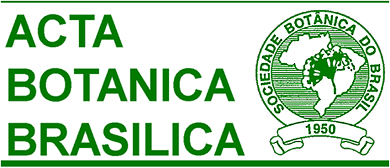EDITORIAL EDITORIAL
ABB, Assistant Editor Associate Researcher of the Botanical Garden of Rio de Janeiro
Should we publish our scientific articles in English? That is a good question. Articles published in English in Brazilian scientific periodicals benefit the author-scientist because this is the only way the results of his or her research can reach an international audience. Information is exchanged and partnerships are formed. Consequently, citations of these articles in international magazines are greatly increased and the role of Brazil in scientific circles worldwide takes a giant step forward.
This is also true for the periodicals that publish articles in English. Visibility is increased and there is recognition by the international community. A survey of the database Scielo reveals that this scenario has become a reality for several Latin American periodicals of Botany as is shown below. The percentage of articles published in English in the last five years varies considerably (mean = 25%).
In its 25 years of existence, Acta Botanica Brasilica (ABB) published 179 articles in English, that is, 7% of all articles published in the magazine during this period. In the early years (1987 to 1999), English was the language of only 4.4% of the articles. But with the change in editorial policy of the ABB that took place around 1997/1998, when botanists in Brazil began to be actively encouraged to submit their articles in English, there was a marked increase to an average of 14% of the articles published in ABB written in English. More recently, as the Brazilian scientific community has become more aware of the significance of this measure, there was a further increase to 28% (2010) and 34% (2011). It should be noted that this increase in number of articles in English went hand-in-hand with an increase in the total number of articles, as of 1998, when the mean number of articles per volume jumped from 25 to 72. The authors of these articles in English are mostly Brazilians (477 Brazilians vs 37 foreigners). These results are significant. But compared to the periodicals cited above, there is still room for improvement. Should we strive to increase the number of articles in English in our periodical?
The answer is yes! We cannot ignore the fact that communication of ideas and information is vital for the advance of all branches of science. The work of botanists in Brazil merits being known worldwide, but unfortunately, most of the world is very poorly versed in the Portuguese language. One of the best ways to overcome this obstacle is to publish in English, the "language of science" if the number of scientific journals that rely heavily on articles in English is any indication. Brazil, with its enormous biodiversity, must be prepared to take its place in the scientific arena, a process that requires participation and communication. And this exchange should be in English.
Botany in Brazil and the English language
Publication Dates
-
Publication in this collection
09 May 2012 -
Date of issue
Mar 2012


